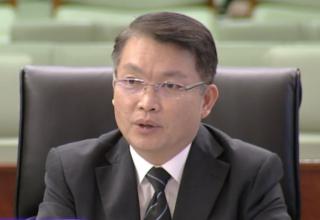Pagcor poised to issue new licences for offshore gaming
Sep 14, 2016 Newsdesk Latest News, Philippines, Top of the deck

State-owned Philippine Amusement and Gaming Corp (Pagcor) has started accepting letters of intent from companies wishing to acquire a Philippines licence for offshore gaming, said the casino and gaming regulator in a statement on Wednesday, as quoted by local media.
Pagcor said it would grant a licence enabling an official service provider to offer “authorised online games of chance via the Internet”. The service provider would be referred to as a Philippine Offshore Gaming Operator (POGO), according to the new rules and regulations for Philippine offshore gaming operations approved this month.
The licence covers e-Casinos – offering products based either on a random number generator device or on live-dealer games – and sports betting. Application and processing fees for such offshore gaming licences would amount to US$50,000 for an e-Casino licence and US$40,000 for a sports betting permit. Upon approval, the applicant would be required to pay US$200,000 for an e-Casino licence and US$150,000 for a sports betting licence.
The new rules state that to be deemed an authorised player of such offshore gaming products, individuals must be physically outside the Philippines. In addition, “Filipino citizens even if abroad and individuals in countries which have laws prohibiting participation of their citizens in online gaming activities” are deemed to be unauthorised to take part in such games.
To ensure all licensed operators heed such conditions, Pagcor will create a task force to monitor the gaming activities of the service providers.
“The monitoring task force will be composed of key personnel from Pagcor, [the] National Bureau of Investigation, and [the] Bureau of Immigration,” the regulator said.
Pagcor had previously said it wished to raise fresh funds by issuing online gaming licences for services that targeted overseas players, in a bid to offset a loss of revenue from domestic online gambling businesses that have recently either been told to close or that have been given notice to cease operations. Andrea Domingo, the new head of Pagcor, said the government stood to lose approximately PHP10 billion (US$215 million) annually in revenue that would otherwise be provided by domestic gaming parlour operators.
The regulator announced in August that it would not be renewing the domestic gaming licence of PhilWeb Corp, which offered Internet-delivered casino games via a network with a total of 286 retail outlets in that country, according to company information. PhilWeb has since stopped its operations. The firm’s controlling shareholder, Roberto Ongpin, has unsuccessfully made several offers to the Philippines government for a deal that would rescue the company.
Philippine gaming investor Leisure and Resorts World Corp (LRWC) said last week that two wholly-owned units had been separately ordered by Pagcor to cease current operation of some electronic games and bingo parlours in that country. The reason given was alleged non-compliance with “distance restriction guidelines”. LRWC has since said is likely to “forgo” PHP56.2-million in profit.
Until now, most licences issued by the Philippines for overseas-targeted online gambling businesses have originated from the Cagayan Economic Zone Authority (known as CEZA), an economic development area in the northeast of the country’s main island. The zone’s master licensor for such permits is First Cagayan Leisure and Resorts Corp, a unit of LRWC.
Aurora Pacific Economic Zone and Freeport Authority (also known as APECO) – the newest gaming jurisdiction in the Philippines – told GGRAsia in August that it continues to issue online gaming licences despite the national government’s stated hostility to domestic online gambling businesses.
“We would like to emphasise that the five online gaming licenses [so far] issued by APECO through its master licensor – Pacific Seaboard Leisure and Entertainment Corp (PSLEC) – were not affected by the reported crackdown by the Philippine government against the country’s online gaming industry,” wrote APECO president and chief executive, Israel F. Maducdoc, in an emailed reply to GGRAsia.
Wednesday’s statement from Pagcor did not clarify if the regulator would require CEZA or APECO to apply for a POGO licence.
Related articles
-
 Music boosts play in land-based and...
Music boosts play in land-based and...Nov 20, 2024
-
 Future of gaming is the online format:...
Future of gaming is the online format:...Nov 20, 2024
More news
-
 GKL provides its new table game...
GKL provides its new table game...Nov 22, 2024
-
 The Baron Upright, a new cabinet from...
The Baron Upright, a new cabinet from...Nov 22, 2024
Latest News
Nov 22, 2024
Casino operator Grand Korea Leisure Co Ltd (GKL) says it has achieved its first commercialisation of a new-to-market table game, developed via an in-house competition dating to 2021. Grand Korea...Sign up to our FREE Newsletter
 (Click here for more)
(Click here for more)
Pick of the Day
”As we navigate the final steps of the licensing process, we remain confident in our ability to align with Brazil’s regulatory requirements”
Eusebio Tanco
Chairman of DigiPlus Interactive
Most Popular
 Macau to get 36mln visitors in 2025: Secretary Lei November 21, 2024
Macau to get 36mln visitors in 2025: Secretary Lei November 21, 2024  Gaming technology firm IGT reports hacking incident November 21, 2024
Gaming technology firm IGT reports hacking incident November 21, 2024  EBITDA a focus in Macau market share battle: Jefferies November 21, 2024
EBITDA a focus in Macau market share battle: Jefferies November 21, 2024  Macau 2025 GGR could top US$30bln govt forecast: Citi November 20, 2024
Macau 2025 GGR could top US$30bln govt forecast: Citi November 20, 2024  Macau big-event outdoor venue gets trial run Dec 28: CE November 20, 2024
Macau big-event outdoor venue gets trial run Dec 28: CE November 20, 2024









